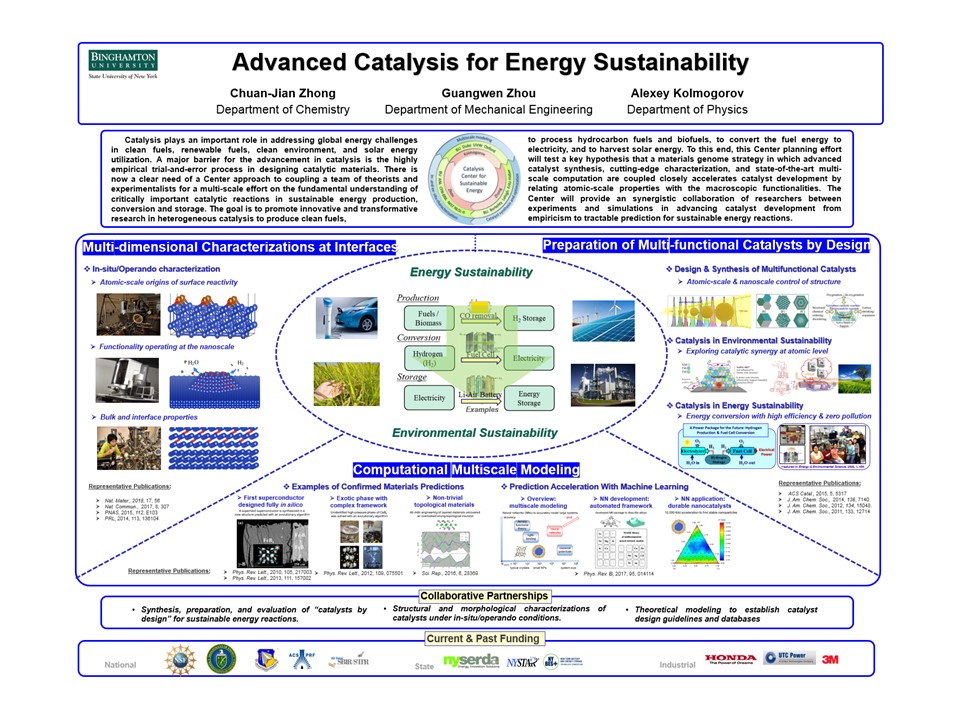Goal
To promote a highly-collaborative synergy among on-campus researchers, off-campus collaborators, and industrial partners in innovative and transformative research to produce clean fuels, clean the environment, process hydrocarbon fuels and biofuels, convert the fuel energy to electricity, and harvest solar energy.
Clean environment
- Emission control
- GHG reduction
- Waste degradation
Sustainable energy
- Hydrogen production
- Fuel cell conversion
- Solar harvesting
Renewable sources
- Biomass production
- Biofuel production
- Waste conversion
Research Areas
Synthesis
Nano-engineered preparations of catalysts
- Nano-engineered and scalable synthesis of catalyst materials
- Energy conversion and storage, fuel cells, Li-air batteries, solar energy conversion
- Energy production, hydrogen production, water splitting
- Emission control systems
Characterization
Cross-cutting in-situ/operando characterizations
- Chemically specific spectroscopy
- High spatial/temporal resolution imaging /diffraction
- Ambient-pressure X-ray photoelectron spectroscopy
Modeling
Multiscale modeling
- Structure prediction
- Neural network modeling
- Ab initio data mining
Catalysis Center for Energy Sustainability - Planning
Catalysis plays an important role in addressing global energy challenges in clean fuels, renewable fuels, clean environment, and solar energy utilization. A major barrier for the advancement in catalysis is the highly empirical trial-and-error process in designing catalytic materials. There is now a clear need of a Center approach to coupling a team of theorists and experimentalists for a multi-scale effort on the fundamental understanding of critically important catalytic reactions in sustainable energy production, conversion and storage. The goal is to promote innovative and transformative research in heterogeneous catalysis to produce clean fuels, to process hydrocarbon fuels and biofuels, to convert the fuel energy to electricity, and to harvest solar energy. To this end, this Center planning effort will test a key hypothesis that a materials genome strategy in which advanced catalyst synthesis, cutting-edge characterization, and state-of-the-art multi-scale computation are coupled closely accelerates catalyst development by relating atomic-scale properties with the macroscopic functionalities. The Center will provide a synergistic platform for experimental and modeling research collaborations to advance catalyst development from empiricism to tractable prediction for sustainable energy reactions.

